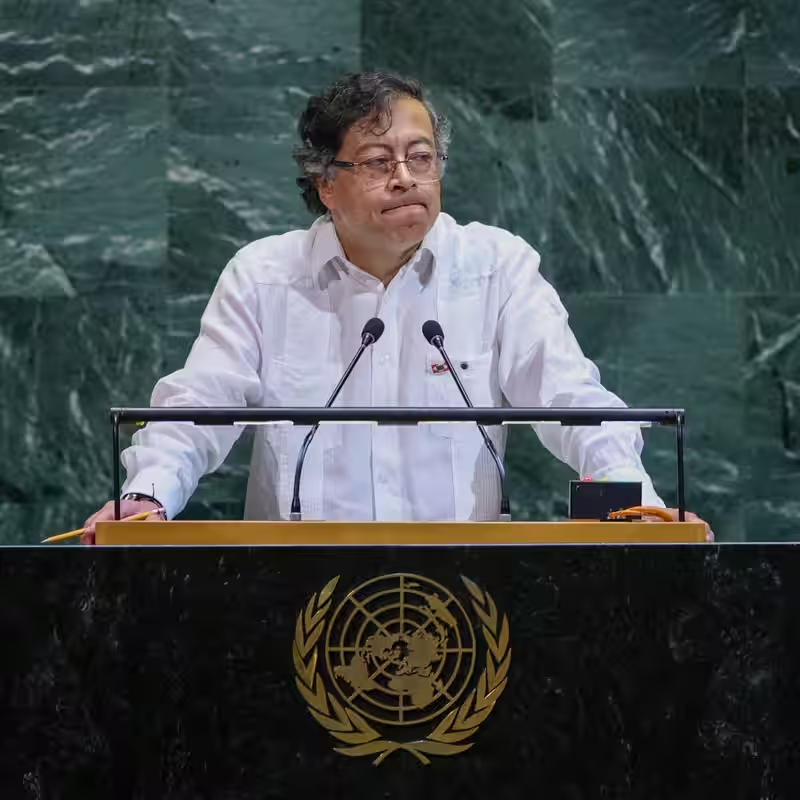In a dramatic escalation of tensions in the Caribbean, Colombian President Gustavo Petro has accused the United States of bombing a vessel carrying Colombian citizens—raising urgent questions about civilian casualties in the Trump administration’s aggressive anti-drug campaign.
The incident marks a troubling turn in U.S. counter-narcotics operations, which have increasingly targeted boats allegedly smuggling drugs from Venezuela to American shores. But with little transparency and no confirmed identities, the true nature of the targeted vessel remains shrouded in mystery.
What Happened in the Caribbean?
According to President Petro, recent U.S. airstrikes in the Caribbean Sea may have killed Colombian nationals. In a post on X (formerly Twitter), Petro declared, “A new war zone has opened up: the Caribbean,” and added, “Signs show that the last boat bombed was Colombian, with Colombian citizens inside.”
He urged families of the missing to come forward and file formal complaints—a move that could trigger diplomatic and legal consequences if verified.
As of now, neither the U.S. Department of Defense nor the Drug Enforcement Administration (DEA) has released details about the strike, including the boat’s flag, crew composition, or evidence of drug trafficking.
The Trump Administration’s Drug War at Sea
The Trump administration has framed these maritime strikes as a necessary response to a surge in cocaine shipments originating in Venezuela and transiting through Caribbean routes. Officials claim the targeted vessels are “narco-submarines” or fast boats operated by transnational criminal networks.
However, human rights groups and regional leaders have long warned that such operations—conducted with minimal oversight—risk civilian lives and violate international maritime law if proper identification protocols aren’t followed.
Colombia’s Growing Concerns
Colombia, a key U.S. ally in Latin America, has historically cooperated on counter-narcotics efforts. But under President Petro—a leftist leader critical of militarized drug policies—relations have grown more complex.
Petro’s government has repeatedly called for a shift from interdiction to addressing root causes like poverty and addiction. This alleged bombing of a Colombian boat could strain bilateral ties further, especially if evidence emerges that non-combatants were harmed.
Table: Key Facts About the U.S. Caribbean Drug Interdiction Campaign
| Aspect | Details |
|---|---|
| Stated Goal | Disrupt drug trafficking from Venezuela to the U.S. via Caribbean sea routes |
| Methods Used | Aerial surveillance, naval patrols, and kinetic strikes on suspect vessels |
| Transparency | Minimal public reporting; no independent verification of targets |
| Colombian Response | President Petro alleges civilians were killed; calls for investigation |
| Legal Concerns | Potential violations of international law if vessels not properly identified |
What Comes Next?
If Colombian families do come forward—as Petro urged—it could force the U.S. to declassify operational details or face diplomatic fallout. Meanwhile, regional organizations like the Organization of American States (OAS) may be called upon to mediate.
For now, the Caribbean remains a shadowy front in America’s drug war—one where the line between trafficker and civilian may be dangerously blurred.




